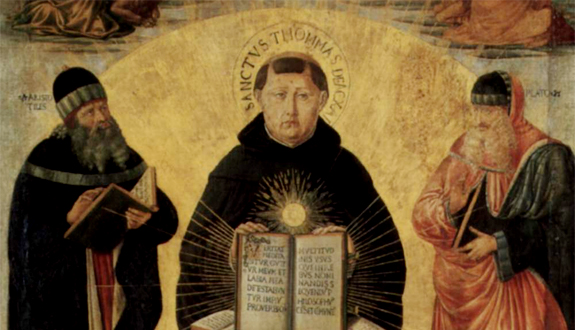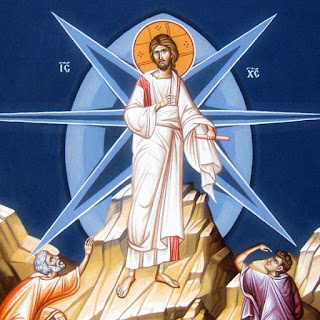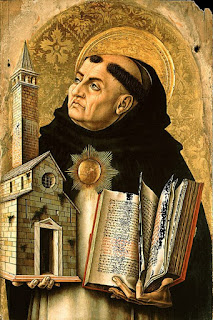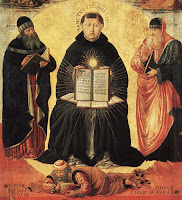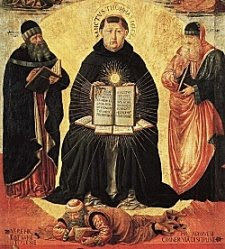Saint Thomas Aquinas, the Angelic Doctor
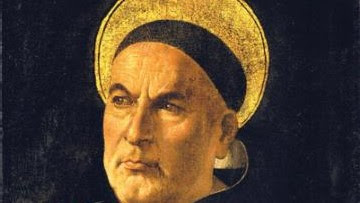
January 28th, is the feast of Saint Thomas Aquinas, the 13th century Dominican theologian who demonstrated that faith and reason are complementary, not contradictory. Renowned among the greatest theologians of the Catholic Church, his master work, the Summa Theologica , was placed on the altar alongside the Bible and the Decretals at the Council of Trent. Aquinas was both a philosopher and a priest. Confronting new developments in thought, he refused either to lose faith or mindlessly believe, and developed a new understanding of the place of reason in human life. His virtuous example and ethereal theological insights are reasons why in 1568, Pope Pius V proclaimed Saint Aquinas the ‘Angelic Doctor’. Thomas Aquinas was born to a noble family in Roccasecca, Italy in 1225. As a young man with preternatural spiritual gifts. he went to study at the University of Naples and there encountered sources of knowledge which had just begun to be rediscovered, ancient Greek and Roman texts. A
